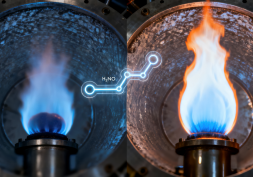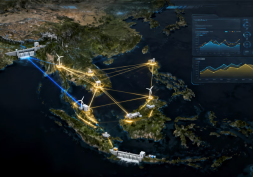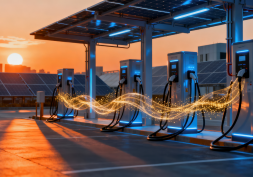Follow CDE on Socials

Dr Rajasekhar Balasubramanian
Professor
Department of Civil and Environmental Engineering
Influencing policy changes on sustainable urban development with scientific evidence
Follow CDE on Socials
"We don't want to look at air pollution and climate change as two separate entities. These two are interconnected--two sides of the same coin."
—— Professor Rajasekhar Balasubramanian
Professor Rajasekhar Balasubramanian wants to contribute to the growth of one of the upcoming initiatives— sustainable urban development—through interdisciplinary research and creative thinking.
In the early days of COVID-19 lockdowns, billions of us around the world hunkered down at home, with businesses and factories operations suspended, and roads emptied. As a result, cities around the world reported seeing clear blue skies and cleaner air.
Against that backdrop, Professor Rajasekhar Balasubramanian (Bala) from the Department of Civil and Environmental Engineering at the National University of Singapore College of Design and Engineering, (CDE) set out on a mission to investigate how much air quality had improved due to curtailing economic activities.

What he found worried him on two fronts.
First, while certain air pollutants, such as airborne particulate matter (PM) decreased, other air pollutants like ozone increased in concentration.
“That’s because the clear blue skies increased the level of solar radiation with decreased levels of PM to create ozone in urban air under favourable weather conditions. Ozone acts not only as a pollutant inducing respiratory ailments but also as a greenhouse gas contributing to global warming,” Bala explained. “By and large, one could say that there was an improvement in outdoor air quality because of reduced human activities, but we cannot say for sure that there’s a dramatic improvement in urban outdoor air quality.”
Second, lockdowns lulled many into the sense that they were protected from outdoor air pollution, but indoor air quality worsened during this time. As cities started locking down, their inhabitants started cooking more at home, relied more on air conditioning, and used more aerosols and sanitising sprays—activities known to affect human health.
Bala saw that what could be seen as an improvement in one aspect of the environment, could result in the worsening of another, leading to unintended consequences on human health. “These findings raise policy-related questions, said Bala, who is also deputy head of communication and engagement for the Department. “We don’t want to look at air pollution and climate change as two separate entities; these are interconnected with each other—two sides of the same coin.”

Driving policymaking processes with science
Using scientific research to impact policy outcomes has been a pursuit for Bala, who has led multiple international research programmes to improve cities’ air quality by collaborating with premier universities.
As a member of the Science Panel of the APCAP (Asia Pacific Clean Air Partnership), launched by UNEP (United Nations Environment Programme), Bala shared his key research findings with environmental policymakers and developed a clean air policy brief on reducing exposure to particulate matter in indoor environments.
APCAP addresses the air pollution challenges of the region by bringing together government leaders, academic experts, private sectors, and civil society organisations. To engage the global community in the process of generating policy-relevant scientific knowledge, Bala contributed a chapter in his area of expertise to the “Global Environment Outlook Report”, published by UNEP, as a lead author. This report addresses pressing environmental issues to achieve the Sustainable Development Goals as well as the Paris Agreement on Climate Change.
In 2019, Bala was the principal investigator for a study that compared air pollution in Singapore, London and San Francisco. Even though all three are economically advanced cities, the cities differ in population, building density, weather and topography. Inhabitants also prefer different modes of transport and lead different lifestyles.
These considerations meant that people’s exposure to PM differed across cities, presenting different risks to their health. Still, outdoor air quality data has primarily come from fixed air quality monitoring stations.
Using portable sensors that tracked individuals’ movements throughout the day, Bala, together with researchers from the University of Cambridge and the University of California, Berkeley, could see how individuals were exposed to PM at different times of the day at various locations.
The researchers found that individuals across the three cities were sometimes exposed to extremely high levels of PM, though for only short periods. And while city officials encouraged active mobility such as walking and cycling to reduce traffic-related carbon footprints, the researchers found that those who walked or cycled were inhaling higher-than-normal levels of air pollutants, which could endanger their health.

Grooming the next generation of interdisciplinary critical thinkers
Bala’s research interests cut across air quality, climate change, sustainability and urban planning. Recognising the need to take an interdisciplinary approach to make cities sustainable, liveable and climate-resilient, he led the development of a new undergraduate educational programme at CDE that focuses on sustainable urban development.
Billed as an interdisciplinary second major, the four-year programme encourages critical thinking in its students—who major in engineering, architecture, science, medicine, and political science, among others—so they can tackle the most pressing issues facing urban development from a climate change and sustainability viewpoint. The students are mindful of the fact that it takes more than just having the interest to have any real impact on sustainability issues.
“Sustainability is the most important aspect of our lives that most of us do not give a second thought to,” noted Max Ang Yi Neng, an alum from Mechanical Engineering who graduated in 2022. “In a world where every job presents an opportunity to be a green job, having sound knowledge of the science behind climate change and principles of sustainable development is an important step to building a better future.”
Indeed, Bala ensures that we groom the next generation of leaders to have the skills they would need to bring forth a robust and clean future. "Ultimately, we all have a role to play to contribute practical ideas to society at large to safeguard a healthy planet," he said.

People
Rajasekhar Balasubramanian Professor, Department of Civil and Environmental Engineering ▏LinkedIn Profile
Related Departments/ Centres
If you are interested to connect with us, email us at cdenews@nus.edu.sg








